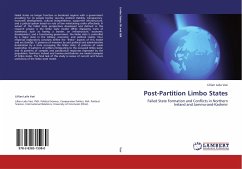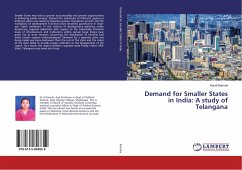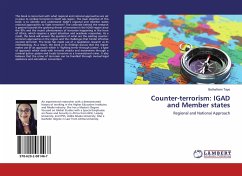
Post-Partition Limbo States
Failed State Formation and Conflicts in Northern Ireland and Jammu-and-Kashmir
Versandkostenfrei!
Versandfertig in 6-10 Tagen
32,99 €
inkl. MwSt.

PAYBACK Punkte
16 °P sammeln!
Failed states no longer function as bordered regions with a government providing for its people border security, political stability, transparency, economic development, cultural independence, supportive infrastructure, and a judicial system based on rule of law maintaining order effectively. A subset of the failed state perspectives developed and defined in this research project is the limbo state model. While displaying traits of statehood, such as having a border, an infrastructure, economic development, and a functioning government, the limbo state is controlled by a major state in the mil...
Failed states no longer function as bordered regions with a government providing for its people border security, political stability, transparency, economic development, cultural independence, supportive infrastructure, and a judicial system based on rule of law maintaining order effectively. A subset of the failed state perspectives developed and defined in this research project is the limbo state model. While displaying traits of statehood, such as having a border, an infrastructure, economic development, and a functioning government, the limbo state is controlled by a major state in the military, economic, and political realms. Four empirical explanatory concepts define the limbo aspects of this model and are (briefly): 1) patterns of invasions by and political and administrative domination by a state occupying the limbo state; 2) patterns of weak leadership; 3) patterns of settlers immigrating to the occupied limbo state; and 4) patterns of complex and paradoxical responsesexpressed by the population. Northern Ireland and Jammu-and-Kashmir are model examples of limbo states. The final task of this study is review of current and future usefulness of the limbo state model.












